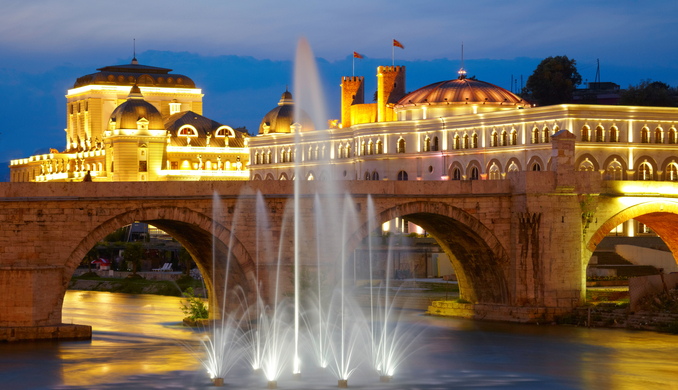Wednesday, 04/03/2026 | 08:09 GMT+7
In the former Yugoslav Republic (FYR) of Macedonia, many municipal authorities agree that energy efficiency is a sound economic solution -- they just don’t always know how to attain it.
“We know these changes bring long-term savings, and we know they’ll be better for the environment,” says Mitko Vlahov, a civil servant in the town of Bogdanci. “But like with any difficult task, you need to have the know-how and the right equipment.”
FYR Macedonia is highly dependent on energy imports. Energy costs alone consume nearly 10 percent of municipal budgets, with older public buildings responsible for around 70 percent of total carbon dioxide emissions.
Following the country’s recent decentralization process, municipalities are now legally responsible for taking measures to boost energy efficiency. But the obstacles are high, particularly for smaller, rural municipalities with limited skills and equipment.

Now, through a UNDP-supported programme, municipalities are coming together and pooling resources, staff and expertise to provide particular municipal services, resulting in reduced costs and better quality.
Inter-municipal cooperation has a proven track record in FYR Macedonia, where in 2006 UNDP introduced the concept for general public service provisions. The success of the cooperation encouraged municipalities to try the same approach with energy efficiency.
In 2011, UNDP began working with national and local partners to pilot inter-municipal cooperation for energy efficiency. The initiative brought together the towns of Gevgelija, Bogdanci and Valandovo, which together have 45,000 residents.
The three municipalities pioneered the use of specialized equipment, such as thermal cameras, and instruments for measuring temperature and humidity, to conduct energy audits of municipal structures.
For the first time, public buildings were audited, and the municipalities of Bogdanci and Valandovo used this information to develop their first energy efficiency programmes and annual action plans. Gevgelija brought its existing programme into compliance with the Law on Energy, and so avoided the costly practice of hiring private companies for audits.
The project began with a basic training session on energy management and efficiency and provided an introduction to inter-municipal cooperation. Additional efforts focused on building the capacities of local authorities to plan and manage energy efficiency projects, analyse data from energy audits and track energy use. A functional analysis of local energy management, the first of its type in the country, was carried out.
“We should all worry about saving energy. This will reduce the need for importing expensive energy. And savings can be used to meet the needs of citizens in health, education and culture,” says Risto Ichkov, mayor of Bogdanci.
Word of the project’s impact spread, and, as a result, eight of the nine municipalities in the Vardar Planning Region embarked on inter-municipal cooperation for energy efficiency. By the end of 2012, they had set up a joint administrative unit and information centre.
With energy efficiency programmes in place, Gevgelija and Bogdanci earmarked municipal funds to implement them. Over the next three years, the two municipalities expect to save several hundred thousand dollars and cut carbon dioxide emissions by nearly 1.3 million kilograms.
By 2015 local residents will enjoy warmer, cleaner, better-lit public facilities, and local authorities will have improved their capacity to address climate change and municipal energy management issues.
Truong Duy







